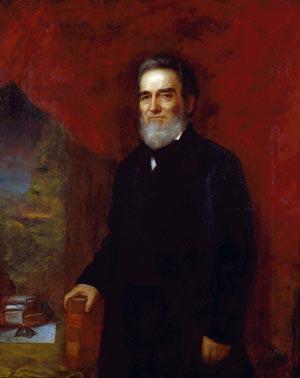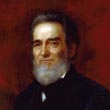The Civil War in Missouri
Save ThisMy CollectionThe Election of 1860

- The 1860 election, in which Abraham Lincoln was elected, was very important. The chaos that occurred during the campaign foreshadowed the war that was coming.
Presidential Election
Highlights
- In 1860 the political parties were more divided than today. There were:
2 Democratic candidates
1 Republican candidate
1 Constitutional Union candidate - Their disagreements were mainly about the expansion of slavery. The election was intense in the entire country, including Missouri.
- The winner of the election in Missouri was Stephen Douglas, of the Democratic Party, who was moderate in his opinions. By voting for him, Missourians showed that they rejected the arguments of Republicans and secessionists. This is why they became a border state. They wanted to keep slavery and stay in the Union.
In-Depth
In the 1860 election the nation and its political parties were divided far more than they are today. In today’s elections two major candidates are chosen, one Republican and one Democrat. In 1860 even members of the same party had a hard time agreeing. The Democratic Party chose two candidates. The Republican Party took three votes to choose Abraham Lincoln, and there was even a third party, the Constitutional Union party. The disagreements were mainly about slavery and its expansion into the territories.
Stephen Douglas represented one wing of the Democratic Party, advocating popular sovereignty. John C. Breckinridge was chosen by the other, advocating that enslaving people was a right. The Republicans nominated the “Rail Splitter,” Abraham Lincoln, who opposed slavery’s expansion into the territories. Last, the Constitutional Union party nominated John Bell, arguing against the formation of sectional parties and disunion over the slavery issue.
The election was intense in the entire country, including Missouri. Robert Rombauer recounts in his book The Union Cause in St. Louis in 1861:
“It happened on election day a party of St. Louis hunters visited F. Kennett’s castle at Selma…. B. G. Farrar, who afterwards became a General in the Union service, was the only Republican in the party, and arrived at the polling place at a store in the woods, was warned by a countryman not to dare to cast a Republican vote. Farrar answered he will vote as he pleases and by way of caution and in full view of the countryman loaded his double-barreled gun with a full complement of buckshot, and cast his vote for Lincoln.”
This type of showdown was an extreme example, but in St. Louis interruptions of Lincoln speakers became so common that Republicans formed an organization called the Wide Awakes to protect against this type of behavior.
The winner of the election in Missouri was Stephen Douglas. He went on to lose the national election to Abraham Lincoln. However, the fact that Missourians voted for this middle-of-the-road candidate foreshadowed the position Missouri held in the Civil War as a border state.
Governor and State Assembly
Highlights
- In April of 1859 the Democratic Party selected Claiborne Fox Jackson as its candidate for governor.
- His closest competition was Sample Orr from the Constitutional Union Party.
- The election was close, but Jackson was declared the winner. It did not take long for Jackson’s true colors to become clear. In his inaugural address he said that he would side with the South.
In-Depth
In April of 1859 the Democratic Party selected Claiborne Fox Jackson as its candidate for governor. Jackson knew that his best chance of election was to support Stephen Douglas. He did so even though he was secretly in favor of secession. In reaction to this decision, supporters of John Breckinridge nominated their own candidate, Mosby Parsons. Also, a group of defunct parties, like the Whig and Know-Nothing parties, chose Sample Orr for the Constitutional Union Party.
Finally, the Republicans put forth James B. Gardenhire as their choice. The election was close, electing Jackson with 47 percent of the vote. Sample Orr finished second with 42 percent. After winning, Jackson’s true allegiances became clear. In his inaugural address in reaction to South Carolina's secession from the Union, Gov. Jackson said,
“The first drop of blood shed in a war of aggression upon a sovereign State will arouse a spirit which must result in the overthrow of our entire Federal system, and which this generation will never see quelled…. The destiny of the slave-holding States of this Union is one and the same. So long as a State continues to maintain slavery within her limits, it is impossible to separate her fate from that of her sister States.”
Conclusion
Highlights
- The election of 1860 showed that Missourians desired to preserve the Union and slavery with it.
- Missourians, without knowing it, had elected a secessionist, Governor Jackson. He had campaigned as a middle-ground Democrat, but would try to drive Missouri into the Confederacy.
- The stage had been set for the power struggle that would bring Missouri to the edge of chaos.
Vocabulary
Popular sovereignty - a doctrine, held chiefly by the opponents of the abolitionists, that the people living in a territory should be free to choose their own policies, including whether or not to have slavery.
Sectional - pertaining or limited to a particular section; local or regional.
Border states - the slave states of Delaware, Maryland, Kentucky, and Missouri, which refused to secede from the Union in 1860–1861.
Defunct - no longer in effect or use; not operating or functioning.
Secession - the withdrawal from the Union of 11 Southern states in the period 1860–1861, which brought on the Civil War.
Democratic Party – The principal pro-slavery party of the era, it was divided over whether to embrace popular sovereignty or a policy of extending slavery into the territories.
Republican Party – Formed in 1854, it developed a platform that included opposition to the expansion of slavery.
Constitutional Union Party – Established in 1860, the party wanted to avoid disunion over the issue of slavery.
Primary Source
